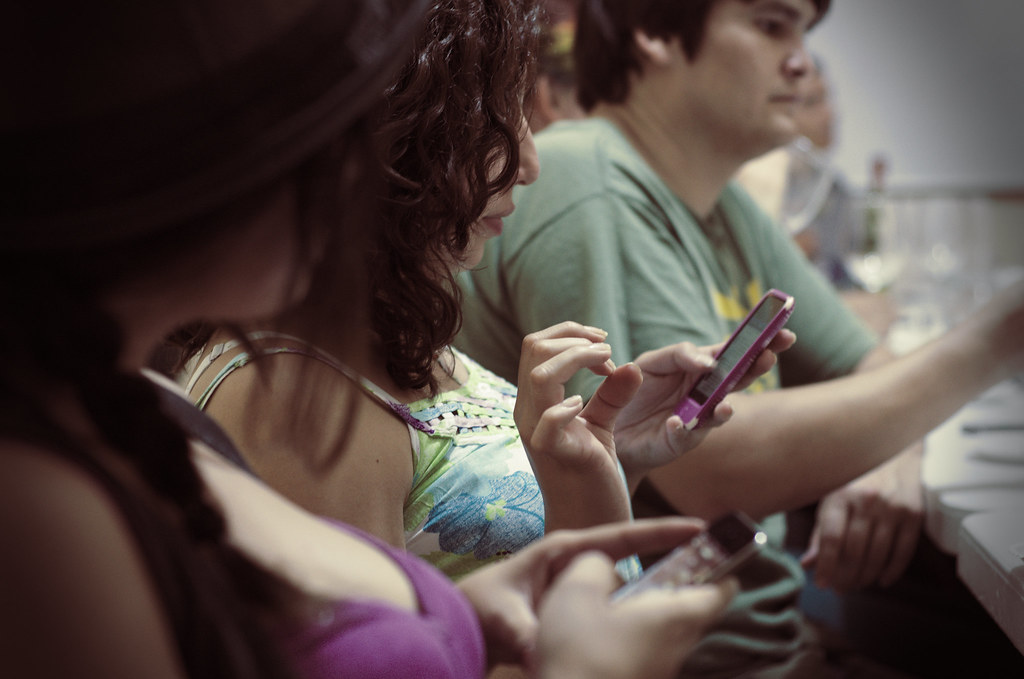
By Luisa Dillner September 3, 2017
You know the feeling – you have left your phone at home and feel anxious, as if you have lost your connection to the world. “Nomophobia” (short for no-mobile phobia) affects teenagers and adults alike. You can even do an online test to see if you have it. Last week, researchers from Hong Kong warned that nomophobia is infecting everyone. Their study found that people who use their phones to store, share and access personal memories suffer most. When users were asked to describe how they felt about their phones, words such as “hurt’” (neck pain was often reported) and “alone” predicted higher levels of nomophobia.
Solution
“The findings of our study suggest that users perceive smartphones as their extended selves and get attached to the devices,” said Kim Ki Joon. “People experience feelings of anxiety and unpleasantness when separated from their phones.” Meanwhile, an American study shows that smartphone separation can lead to an increase in heart rate and blood pressure.
So
can being without your phone really give you separation anxiety? Mark
Griffiths, chartered psychologist and director of the International
Gaming Research Unit at Nottingham Trent University, says it is what is
on the phone that counts – the social networking that creates Fomo (fear
of missing out).
“People don’t use their phones to talk to other people – we are talking about an internet-connected device that allows people to deal with lots of aspects of their lives,” says Griffiths. “You would have to surgically remove a phone from a teenager because their whole life is ingrained in this device.”
Griffiths thinks attachment theory, where we develop emotional dependency on the phone because it holds details of our lives, is a small part of nomophobia. For “screenagers”, it is Fomo that creates the most separation anxiety. If they can’t see what’s happening on Snapchat or Instagram, they become panic-stricken about not knowing what’s going on socially. “But they adapt very quickly if you take them on holiday and there’s no internet,” says Griffiths.
Deliberately separating from your phone by turning it off or leaving it at home can reduce dependency and anxiety. Griffiths says the criteria for phone addiction include it being the most important thing in your life, building up the time you spend on it, withdrawal symptoms, using it to de-stress or to get excited. Your phone-use also needs to compromise relationships or work and provoke inner conflict – you know you should cut down, but can’t. Few people, Griffiths says, fulfill these criteria. But surely many of us experience some of them. Alternet
“People don’t use their phones to talk to other people – we are talking about an internet-connected device that allows people to deal with lots of aspects of their lives,” says Griffiths. “You would have to surgically remove a phone from a teenager because their whole life is ingrained in this device.”
Griffiths thinks attachment theory, where we develop emotional dependency on the phone because it holds details of our lives, is a small part of nomophobia. For “screenagers”, it is Fomo that creates the most separation anxiety. If they can’t see what’s happening on Snapchat or Instagram, they become panic-stricken about not knowing what’s going on socially. “But they adapt very quickly if you take them on holiday and there’s no internet,” says Griffiths.
Deliberately separating from your phone by turning it off or leaving it at home can reduce dependency and anxiety. Griffiths says the criteria for phone addiction include it being the most important thing in your life, building up the time you spend on it, withdrawal symptoms, using it to de-stress or to get excited. Your phone-use also needs to compromise relationships or work and provoke inner conflict – you know you should cut down, but can’t. Few people, Griffiths says, fulfill these criteria. But surely many of us experience some of them. Alternet
No comments:
Post a Comment